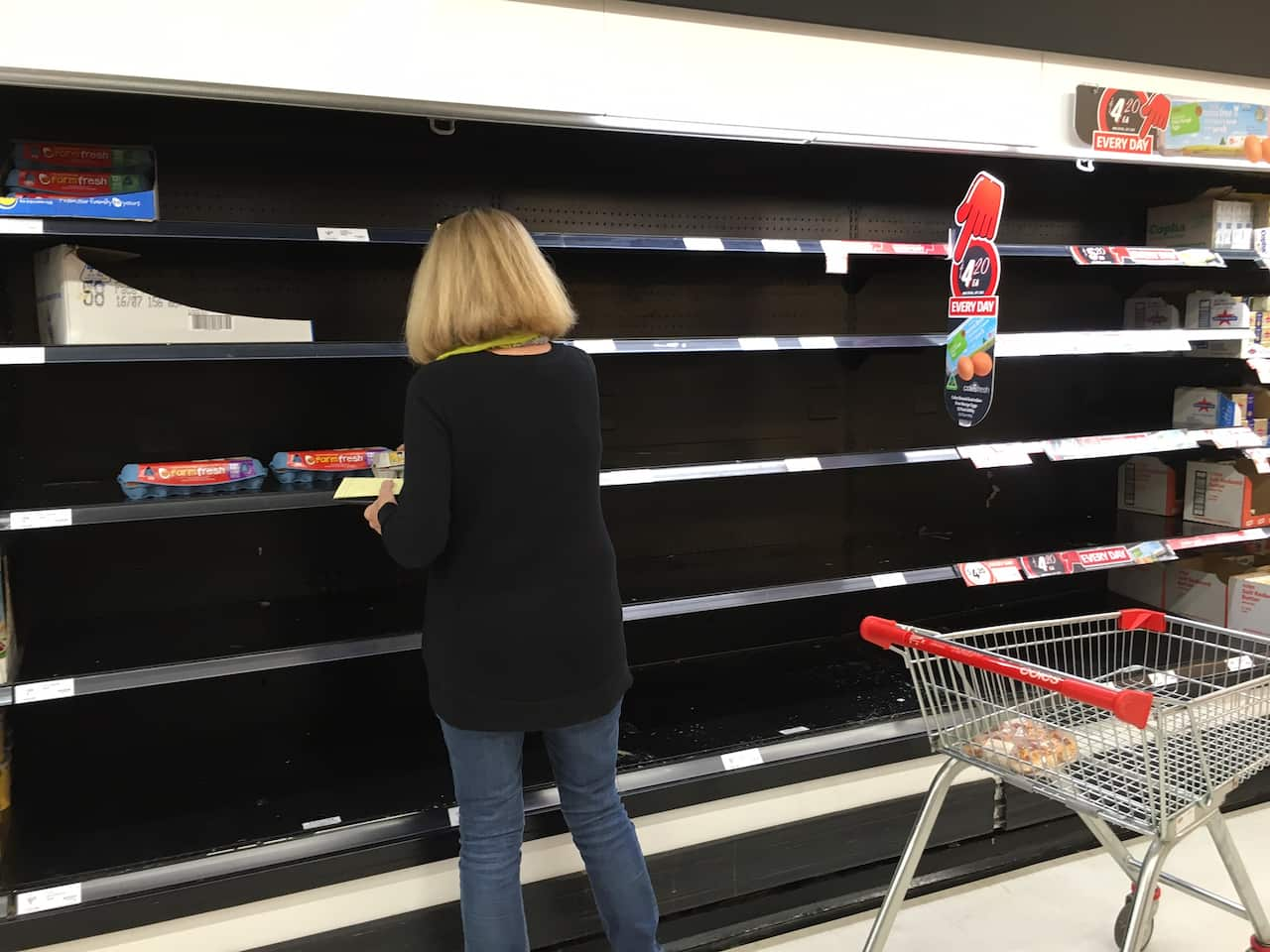A shortage of eggs in major supermarkets across Australia is expected to last until the end of winter as changes to free-rage laws, consumer behaviour and greater sales place a strain on total supply.
According to Egg Farmers of Australia, commercial egg production has slumped by up to 15 per cent despite the sale of eggs in all ranges growing by 3.5 per cent recently.
Its national spokesman John Coward said three contributing factors had ultimately led to the shortage of eggs on supermarket shelves, which has affected consumers in NSW and Victoria in particular.
Mr Coward said an overhaul on the labelling of free-range eggs in March by consumer affairs ministers requires free-range egg farmers to have a density of 10,000 hens or fewer per hectare.
Free range hens must also have meaningful and regular access to the outdoors and is planned to be in place within 12 months.
Mr Coward said cold winter weather meant hens laid fewer eggs which influenced the rate of production in an industry where free-range made up 48 per cent of total egg sales.
"You've got a seasonal thing where free-range hens go to sleep in winter, in fact some stop laying altogether ... unlike caged or barn hens," he said.
A rise in consumers using eggs as their preferred source of protein - with eggs selling at about $7 per kilogram compared to $25 per kilogram for steak - had also contributed to low stocks, Mr Coward said.
"But this overall shortage is not critical and that's probably the key," he said.
"In the short-term we'll see a recovery of eggs on shelves in two to three months, and the market, in the long-term, will come back to its normal demand and supply by next year."
A Woolworths spokesman said the recent consumer affairs changes in what defines free-range eggs, combined with a high demand during the Easter period, had contributed to shortages in its stores.
He said all major food retailers were experiencing this, particularly in free-range, which had in turn put pressure on other ranges.
A Coles spokeswoman confirmed the widespread shortage and said seasonal changes combined with a "significant increase in consumption" had led to the shortage it was experiencing.
Both stores are working with their respective suppliers to boost production and ensure a full range of eggs is available for the demand of customers as soon as possible.
Woolworths is expecting a return to normal supply shortly.
An Aldi spokeswoman said its supermarkets remained unaffected and confirmed it hadn't experienced any shortage of eggs in its stores.

Debate over the changes
Mr Coward said setting a definition to the labelling of free-range would now let farmers begin investing in the infrastructure they had been reluctant to build as they were unsure what was needed.
He said the change was a logical, science-based argument that provides greater clarity.
Under the new rules, eggs labelled as free-range must specify the stocking density of hens so consumers can compare the practices of different egg producers.
Mr Coward said the change would help consumers make a better judgement when choosing what to buy.
He said the sale of free-range eggs would continue to grow moderately with retailers already noticing a shift towards greater confidence in the industry since the definition on free range labelling was finalised.
But a spokesman for consumer group CHOICE said the changes still reflected "commercial interests of large industrialised egg producers" that fuel a "free-range egg rip-off".
"Industrialised egg producers hijacked the free-range credence claim in pursuit of an unjustified price premium ... which is quite possibly one of the biggest consumer cons we've seen," he said.
Based on CHOICE's research, in 2014, 213 million eggs sold as free-range did not meet consumers' ethical expectations, as they could be paying a premium of $21-$43 million a year for eggs that are not actually free-range.
Producers Sunny Queen Farms have reduced their free range standard further to a density of 1500 hens per hectare.
Its managing director John O'Hara said sales have grown more than 13 per cent since the hen density standard was reduced, which has also led to greater marketshare.
"Consumers have shown us hen welfare is paramount when it comes to free range eggs and we will continue to invest heavily to meet this increasing demand," Mr O'Hara said.

